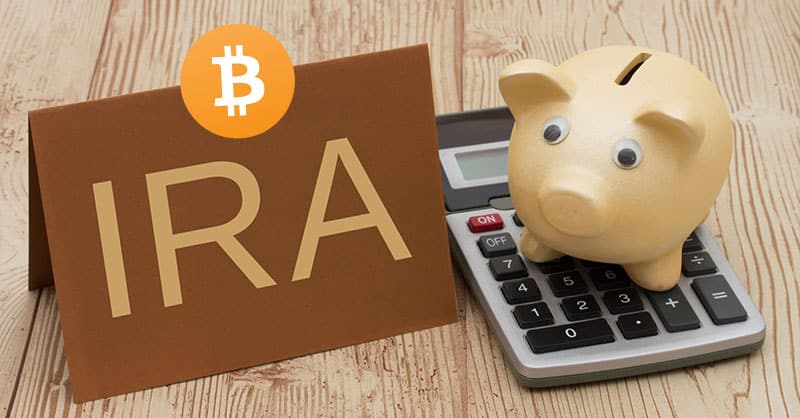A Bitcoin IRA allows investors to hold Bitcoin and other digital assets within a tax-advantaged retirement account. Major custodians now offer self-directed IRAs that allow you to add Bitcoin, gold, real estate, and more. By integrating Bitcoin into retirement plans, investors can potentially benefit from long-term price growth while deferring taxes.
Self-directed IRAs expand the universe of retirement investments beyond stocks and bonds, giving savers access to emerging asset classes with unique return profiles.
How Bitcoin IRAs Work in Retirement Accounts
Self-directed IRAs allow investments in alternative assets beyond stocks and bonds. To add Bitcoin, investors open an eligible IRA, fund it via cash rollovers or contributions, and direct the custodian to purchase Bitcoin through a partnered exchange. The custodian stores Bitcoin in a secure wallet, often with multi-signature protection, until investors take distributions.
Custodians typically handle all record-keeping, compliance reporting, and custody, ensuring that the IRA remains compliant with IRS rules while safeguarding private keys in offline storage.
Key Benefits of Holding Bitcoin in an IRA
Tax Deferral or Tax-Free Growth: Traditional IRAs defer taxes until withdrawals. Roth IRAs offer tax-free growth if qualified distributions are taken after age 59½.
Portfolio Diversification: Bitcoin’s low correlation with equities and bonds may reduce overall portfolio volatility.
Inflation Hedge: As a scarce digital asset capped at 21 million coins, Bitcoin can act as a store of value against inflation.
Including Bitcoin in a retirement portfolio can provide a hedge during periods of currency devaluation or stock market downturns.
Which IRA Types Allow Bitcoin Investments?
Both Traditional and Roth IRAs can hold Bitcoin. Contributions to traditional IRAs may be tax-deductible, while Roth IRA contributions use after-tax dollars but permit tax-free withdrawals. SEP and SIMPLE IRAs can also be self-directed for Bitcoin exposure.
Employers sponsoring SEP or SIMPLE plans must adopt a self-directed model, appointing an approved custodian that permits digital asset holdings.
Providers That Offer Bitcoin IRAs
Several custodian platforms specialize in Bitcoin IRAs:
iTrustCapital – Offers commission-free trading and secure cold storage for Bitcoin and other digital assets.
BitcoinIRA – Provides automated Bitcoin purchases and IRS-compliant custody through BitGo trust.
AltoIRA – Enables Bitcoin and blockchain fund investments inside traditional and Roth IRAs.
BitIRA – Offers insured cold storage and multi-sig wallets for IRA-held digital assets.
Equity Trust – Known for self-directed IRAs that include Bitcoin and other alternative assets.
Each provider differs on fee structures, minimum balance requirements, and supported cryptocurrencies beyond Bitcoin.
Setting Up a Self-Directed Bitcoin IRA
1. Choose a Custodian: Select a self-directed IRA provider that supports Bitcoin.
2. Open and Fund the IRA: Complete account paperwork and initiate a rollover or contribution.
3. Select Investments: Instruct the custodian to purchase Bitcoin via its exchange partner.
4. Secure Storage: Custodians transfer Bitcoin into cold storage wallets with insured protection.
5. Monitor and Manage: Track holdings via the custodian’s portal and rebalance as needed.
Account setup can often be completed online within a few business days, after which investors have full control over asset allocation.
Can You Buy Bitcoin in a Roth IRA?
Yes, Roth IRAs allow Bitcoin investments, just like traditional IRAs. Investors pay taxes on contributions upfront, then enjoy tax-free growth. Roth IRAs can be ideal for younger investors expecting higher future tax rates.
Roth IRAs also avoid required minimum distributions (RMDs), allowing Bitcoin positions to grow uninterrupted into retirement.
What Companies Offer IRAs with Bitcoin Options?
Fidelity, Vanguard, and Schwab currently do not support direct Bitcoin holdings. Instead, they offer futures-based ETFs or trusts. For direct Bitcoin IRAs, consider using the specialized custodians listed above.
Large brokerages may introduce direct digital asset custody as regulatory clarity evolves and client demand increases.
Fees and Costs of Bitcoin IRAs
Fees vary by provider but typically include:
Account Setup Fee: One-time charge, often $50–$100.
Annual Custody Fee: Ranges from 0.25% to 1% of assets under management.
Trading Commissions or Spreads: Some platforms charge per-trade fees or markups on buy/sell spreads.
Be sure to compare fee schedules before selecting a provider. Lower fees can meaningfully impact long-term returns, especially on smaller account balances.
Tax Considerations for Bitcoin IRAs
Required Minimum Distributions (RMDs): Traditional IRAs mandate RMDs from age 73. Roth IRAs do not require RMDs for the original account owner.
Early Withdrawal Penalties: Distributions before age 59½ may incur a 10% penalty plus income tax.
Reporting Requirements: Custodians file Form 5498 to report contributions and Form 1099-R for distributions.
Investors should consult a tax professional to understand how IRA-held digital assets interact with estate planning and beneficiary designations.
Risks of Holding Bitcoin in an IRA
Volatility: Bitcoin prices can swing dramatically.
Regulatory Changes: Future rules could affect IRA-held digital assets.
Custodial Risk: The loss or mismanagement of private keys can put holdings at risk.
Liquidity Constraints: Converting large Bitcoin positions to cash may take time.
Investors should weigh these risks against potential tax savings and diversification benefits.
Future Outlook for Bitcoin IRAs
As regulatory clarity improves, we may see broader adoption of Bitcoin IRAs. Proposed legislation could further streamline IRAs for alternative assets. Growth in Bitcoin ETF offerings may also encourage traditional custodians to add direct Bitcoin IRA options.
Institutional interest in digital assets and mounting legislative support suggests that retirement accounts could soon offer more seamless and cost-effective Bitcoin integration.


